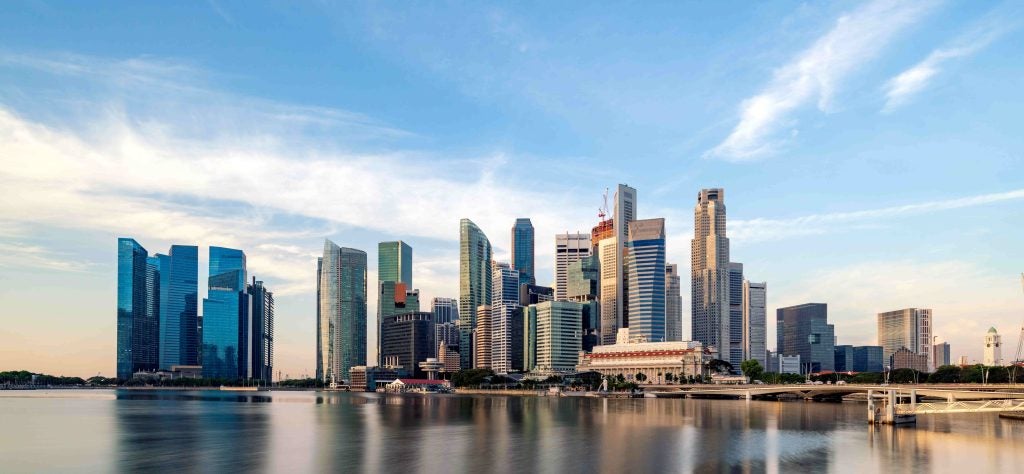Wealthy individuals are increasing their demands on wealth managers as the number of millionaires continue to rise in the Arab world. A WealthInsight report, authored by Dr Roselyn Lekdee, examines the growth in the Gulf area and the best practice for private banks. John Schaffer investigates the findings
Although the price of oil has been steadily decreasing, the Middle East continues to see a growth in the amount its wealthy individuals, according to a recent report by WealthInsight.
The report, Wealth managers and private banks should target SMEs in the Middle East’, finds that the millionaire population in the Gulf region grew by a compound annual growth rate (CAGR) of 8.1% from 136,195 individuals in 2010 to 185,816 in 2014. The WealthInsight report finds that the super-rich in the Middle-East often expect investment gain to be no less than 10% of their investments.
Dr Roselyn Lekdee, analyst at WealthInsight says: "The Middle Eastern millionaires and billionaires seem to have complex needs and require sophisticated wealth management services. They not only have a safe investment attitude, but also expect high returns."
Wealthy Middle – Easterners are still prevalent in the London property market, especially in the highly desirable areas of Knightsbridge and Kensington.
Transparent communication is important to HNWIs and UHNWIs in the Middle East, and clients tend to prefer personal communication with their advisors. Wealth managers have to maintain trust with their clients so as to meet the investment objectives of the super-rich.
How well do you really know your competitors?
Access the most comprehensive Company Profiles on the market, powered by GlobalData. Save hours of research. Gain competitive edge.

Thank you!
Your download email will arrive shortly
Not ready to buy yet? Download a free sample
We are confident about the unique quality of our Company Profiles. However, we want you to make the most beneficial decision for your business, so we offer a free sample that you can download by submitting the below form
By GlobalDataLekdee says: "When the desire to maintain wealth is greater than the need to create wealth, open communication becomes important to target wealthy Middle Easterners, especially for multimillionaires."
Multiple millionaires
The concentration of millionaires in the Gulf region is predominately in the UAE, Saudi Arabia, Kuwait and Qatar. The WealthInsight report forecasts that the number of millionaires in the region is expected to exceed 220,000 by 2019. The growth has been strongest in emerging markets such as Qatar, where there has been a CAGR of 8.9% between 2010 and 2014.
"Several factors support the fast-growing number of HNWIs in Bahrain and Qatar, but the most obvious influential reason is the size of their economies. Being smaller and less developed markets, Bahrain and Qatar stand a greater chance of growth than matured markets such as the UAE and Saudi Arabia.
"When the market is new, there are fewer players and less competition, which in some cases can enhance greater chance for the SMEs to use first-mover advantage strategy – generating wealth and hence creating more millionaires," says Lekdee.
Culturally-specific investments
Wealthy individuals in the Gulf region have specific requirements that set them apart from the western market. Many wealthy individuals in the region require their investment portfolios to be Sharia compliant. This requirement poses unique challenges to wealth managers in the region, where many of the traditional western investment strategies would not abide by the Islamic religious needs.
Although implementation of Sharia compliant investments could prove difficult, the gap in the market for these services offers a significant opportunity for wealth managers and private banks, WealthInsight finds.
Sharia law, derived from the Quran, governs a considerable portion of Muslim life. Islamic finance centres around the ownership of assets and the sharing of risk rather than interest based investments such as bonds. The Sharia concept of Riba, means that interest payments are forbidden as they are considered to be usuary.
Sharia law includes a number of impermissible investments, named Haraam. Investments are forbidden in industries related to pork, alcohol, tobacco, pornography, prostitution and weaponry amongst others. The religious laws also disallow investments in certain forms of western entertainment and advertising that conflict with Islam.
Growth of SMEs
SMEs lead the way in the provision of Sharia compliant products. However, a study by the International Finance Corporation (IFC) shows that approximately 35% of SMEs in the Middle East are not part of the formal banking sector, due to seeking Sharia-compliant products that are not readily accessible in the market.
There is an opportunity for mass affluent HNWIs to tap into the growing SME Sharia compliant industry.
Lekdee says: "It might be obvious, but the best way for private banks and wealth management firms to benefit from significant growth in Islamic finance in the Middle East is to target the needs of the SMEs more proactively, which could include micro finance lending or angel investments.
These SMEs are the strong engine that drives the Middle Eastern economies. It is not just about the needs of millionaires that drive the wealth management sector in the Middle East, financial needs of the SMEs which largely remain untapped matter as well."
The growth of SMEs in the region could also provide new investment opportunities for wealth managers in the west, with the significant untapped wealth potential of HNWIs in the Gulf region.







